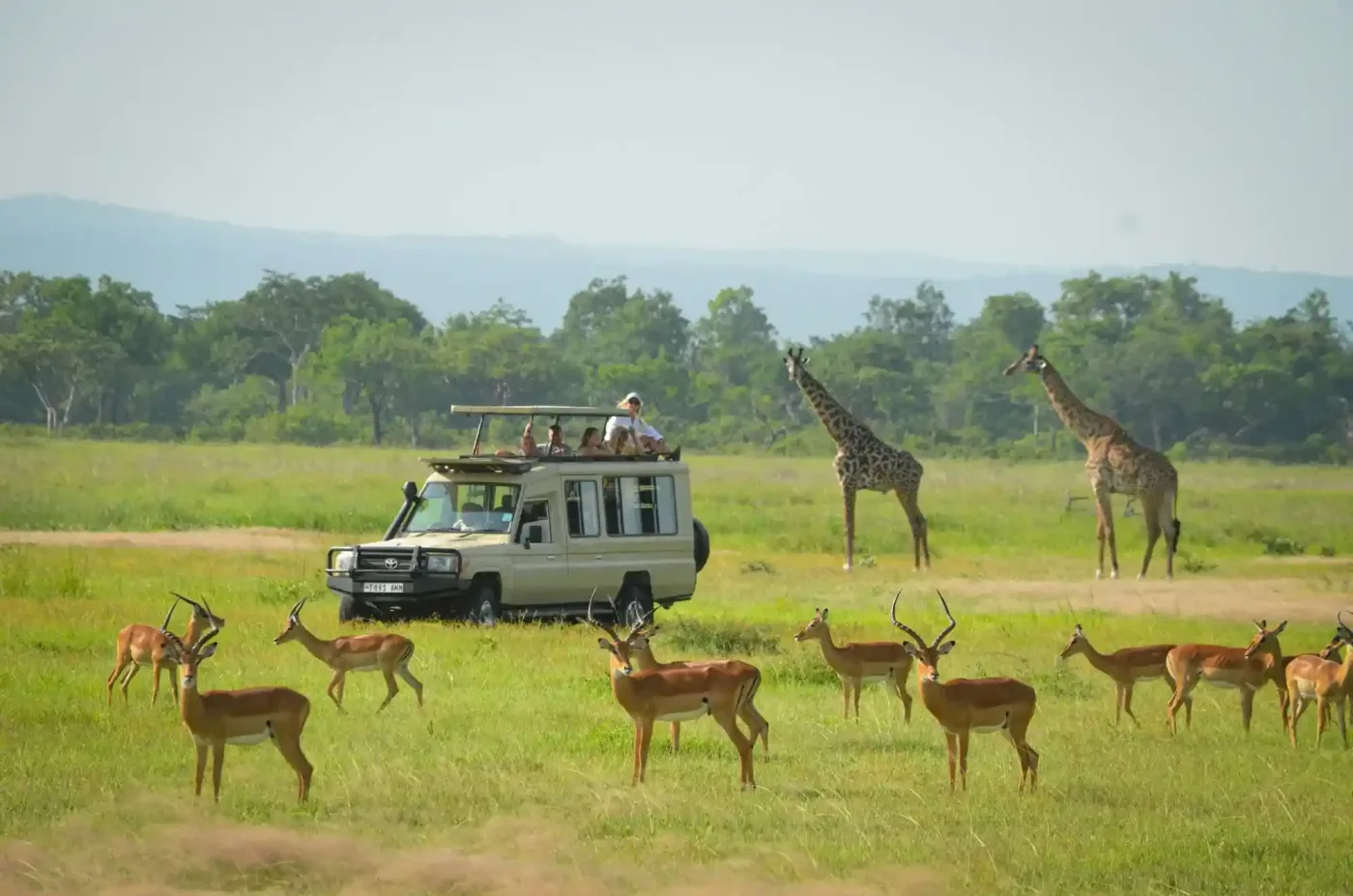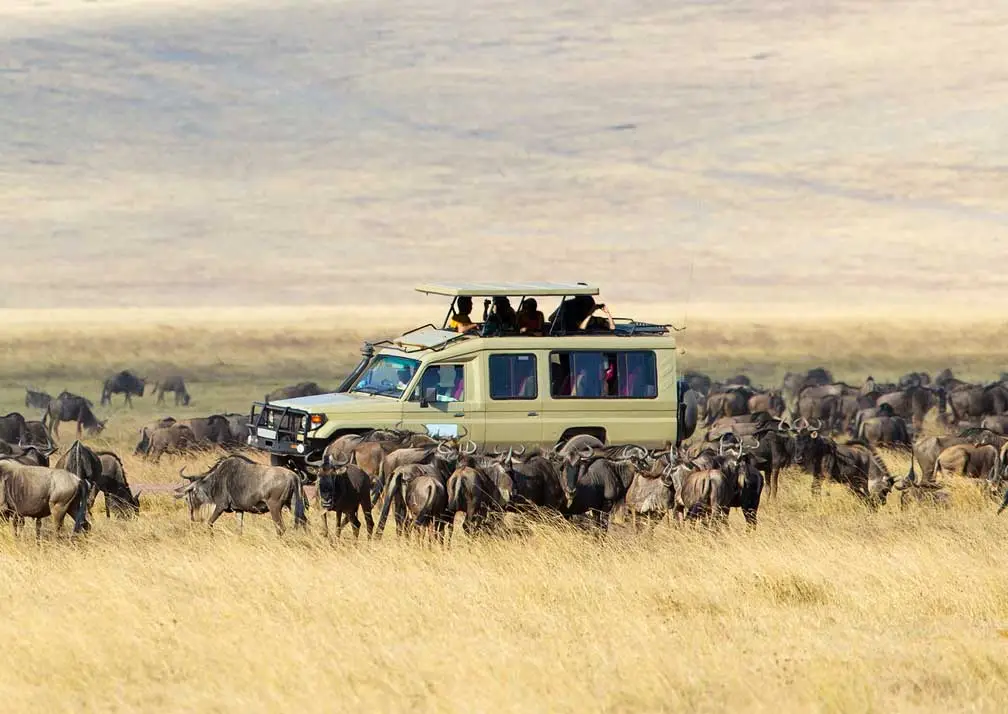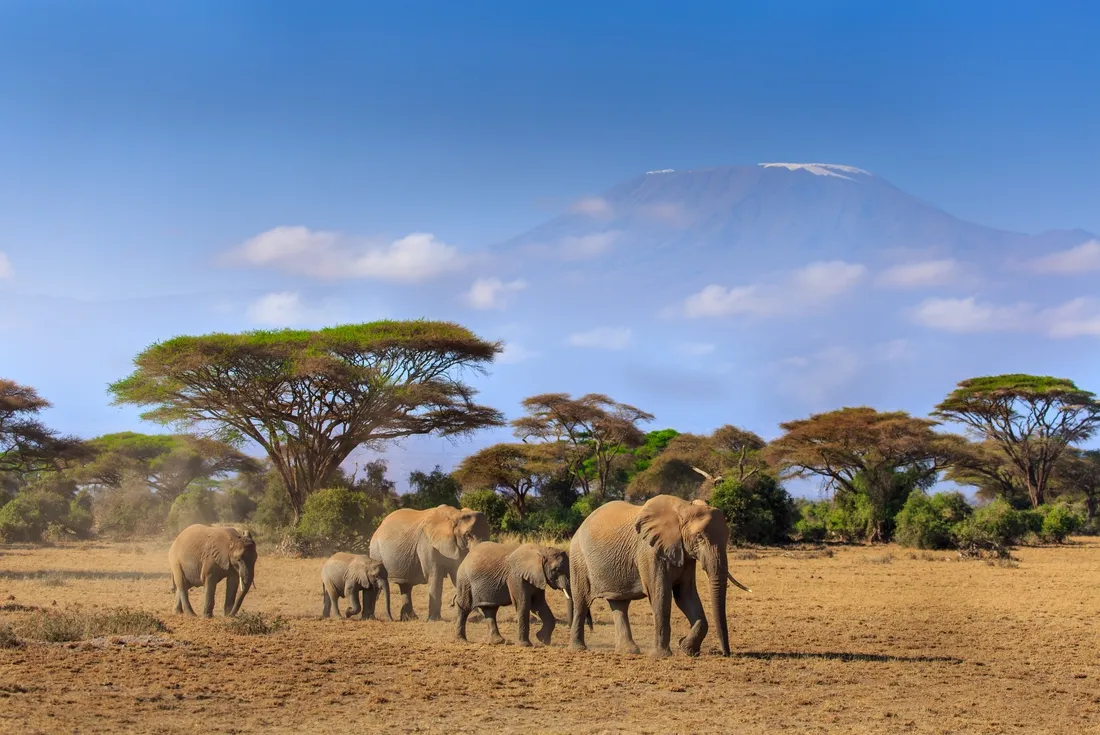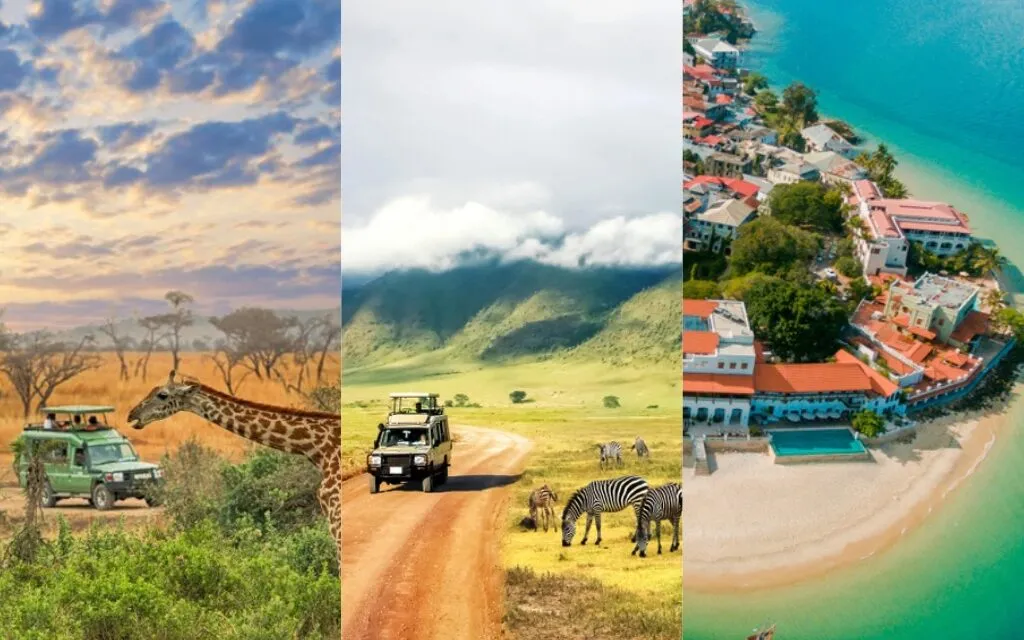Serengeti National Park Safari Guide: Wildlife, Seasons & Tours
To make the most of your Serengeti safari, plan your visit around wildlife migration patterns and seasonal highlights. Pack lightweight clothing for daytime warmth, a hat and sunglasses for sun protection, and binoculars for spotting animals from a distance. Choose guided tours to increase your chances of seeing the Big Five, and bring a camera with extra batteries to capture unforgettable moments. Respect park rules, keep a safe distance from animals, and stay hydrated during long game drives. Below is a comprehensive Serengeti National Park safari guide, covering wildlife, best seasons, and top tours offered by Capable Africa Tours.
Plan Your Serengeti Safari Now
Why Choose Serengeti National Park for Your Safari?
Spanning 14,750 km², Serengeti National Park is one of Africa’s most iconic safari destinations. It offers an unparalleled safari experience with its vast open plains, diverse wildlife, and spectacular annual migration of over a million wildebeest and zebras. Spot the Big Five lion, elephant, buffalo, leopard, and rhinoceros alongside cheetahs, giraffes, and countless bird species. Enjoy a variety of safari experiences, from game drives and hot air balloon rides to guided walking tours, all set against breathtaking landscapes of savannahs and kopjes. With Capable Africa Tours, you’ll explore diverse regions like the Seronera Valley and Northern Serengeti, tailored to your interests. Here’s why Serengeti stands out for an unforgettable safari.
Serengeti Safari Highlights
- Great Migration: Witness 1.5 million wildebeests and zebras migrate, with dramatic river crossings (July–September) and calving (January–February).
- Big Five: Spot lions, elephants, buffalos, leopards, and rare black rhinos in one park.
- Birdwatching: Over 500 bird species, including ostriches, flamingos, and secretary birds.
- Diverse Tours: Game drives, hot air balloon rides, walking safaris, and photography tours with Capable Africa Tours.
- Accommodation Variety: From budget campsites to luxury lodges like Four Seasons Safari Lodge.
Wildlife in Serengeti National Park
The Serengeti National Park is a wildlife paradise, known for its Big Five: lion, elephant, buffalo, leopard, and rhino. It is also home to cheetahs, giraffes, zebras, and wildebeests. Seeing these animals in their natural habitats is exciting, especially during the Great Migration when millions of wildebeests and zebras travel across the plains. To have the best experience, pack binoculars, a camera, and a spirit of adventure; you’ll want to enjoy every moment. Capable Africa Tours has expert guides who will help you spot everything, from elusive leopards to large elephant herds.
Key Wildlife to Spot
- Lions: Over 3,000 lions, with prides often seen in Seronera and Lobo areas.
- Leopards: Elusive but frequently spotted in trees near rivers, especially in Central Serengeti.
- Elephants: Over 5,000 elephants roam the park, often seen in herds of 20–50.
- Black Rhinos: Rare, with a population of about 30, best seen in the Moru Kopjes.
- Cheetahs: Known for high-speed hunts, commonly found in open plains like Namiri.
- Migratory Species: 1.5 million wildebeests, 200,000 zebras, and 300,000 gazelles during the Great Migration.
- Birds: Over 500 species, including kori bustards, martial eagles, and lilac-breasted rollers.
Wildlife Viewing Tips
- Early Morning Drives: Animals are most active at dawn (6–9 AM).
- Use Binoculars: Essential for spotting distant predators or birds.
- Stay Quiet: Minimize noise to avoid startling wildlife.
- Expert Guides: Capable Africa Tours’ guides know animal behaviors and prime locations.
Wildlife Stats
| Animal | Estimated Population | Best Viewing Area |
|---|---|---|
| Lions | 3,000+ | Seronera, Lobo |
| Elephants | 5,000+ | Northern Serengeti |
| Black Rhinos | ~30 | Moru Kopjes |
| Wildebeests (Migration) | 1.5 million | Western Corridor, Northern Serengeti |
| Bird Species | 500+ | Seronera, Grumeti |
Experience Serengeti’s Wildlife in Action
Watch this video to see the Serengeti’s vibrant wildlife and stunning landscapes through a safari with Capable Africa Tours, featuring the Great Migration and Big Five sightings.
Best Seasons for a Serengeti Safari
Timing your Serengeti safari is key to maximizing wildlife sightings and enjoying pleasant weather. The dry season (June–October) offers clear views and concentrated animal activity near water sources, while the wet season (January–March) is ideal for the Great Migration’s calving. Capable Africa Tours helps you choose the perfect season based on your goals.
Seasonal Breakdown
| Season | Months | Weather | Pros | Cons |
|---|---|---|---|---|
| Dry (Peak) | Jun–Oct | Sunny, 70–85°F | Clear views, easy wildlife spotting | Higher crowds, costlier |
| Wet (Green) | Jan–Mar | Mild rain, 65–80°F | Calving season, lush scenery | Some muddy tracks |
| Shoulder | Apr–May, Nov–Dec | Heavy/light rain | Fewer tourists, lower costs | Unpredictable weather |
Great Migration Timeline
- Jan–Feb: Calving in Southern Serengeti (Ndutu), with newborn wildebeests and predator action.
- Jun–Jul: Herds move to Western Corridor for Grumeti River crossings.
- Aug–Sep: Dramatic Mara River crossings in Northern Serengeti.
- Oct–Dec: Herds return south through Central Serengeti.
Costs and Inclusions for Serengeti Safaris
When planning a Serengeti safari, costs can vary widely depending on the season, accommodation type, and length of the trip. Typically, prices cover park entry fees, game drives, a professional guide, and meals sometimes including transfers and flights between camps. Extras like tips, drinks, and personal expenses are usually not included. Budget, mid-range, and luxury options exist, so it’s easy to match your safari style with your wallet. A Serengeti safari with Capable Africa Tours starts from $200 per person per day, depending on accommodation and tour type. Our all-inclusive packages cover park fees, guides, meals, and transfers, ensuring a hassle-free experience.
What’s Included
- Serengeti National Park fees ($70–$100 per person per day)
- Professional guides and drivers (1 guide per vehicle)
- All meals (fresh, tailored to dietary needs)
- Accommodation (camping, mid-range, or luxury lodges)
- 4x4 safari vehicles with pop-up roofs
- Airport transfers from Kilimanjaro or Arusha
Additional Costs
- International flights ($800–$1,500)
- Travel insurance (covering medical evacuation)
- Tips for guides and drivers ($10–$20 per day)
- Optional activities (e.g., balloon safaris: $500–$600)
- Personal expenses (souvenirs, drinks)
Packing and Preparation for Your Serengeti Safari
Packing smart ensures comfort and enhances your safari experience. Opt for lightweight, neutral-colored clothing to blend into the environment and avoid attracting insects. Capable Africa Tours provides a detailed packing guide to prepare you for Tanzania’s variable climate.
Packing Checklist
- Clothing: Lightweight long-sleeve shirts, trousers, fleece jacket, hat (neutral colors: khaki, beige).
- Footwear: Comfortable walking shoes or boots, sandals for evenings.
- Accessories: Binoculars (8x42 recommended), camera with zoom lens, sunscreen (SPF 50+), insect repellent.
- Essentials: Reusable water bottle, daypack, sunglasses, personal medications.
- Documents: Passport, yellow fever certificate, travel insurance.
Health and Safety Tips
- Vaccinations: Yellow fever required; malaria prophylaxis recommended.
- Sun Protection: Use high SPF sunscreen and wear a wide-brimmed hat.
- Hydration: Drink 2–3 liters of water daily, provided by Capable Africa Tours.
- Respect Wildlife: Maintain a safe distance and follow guide instructions.
Ready for Your Serengeti Safari Adventure?
Join Capable Africa Tours for an unforgettable Serengeti safari, tailored to your interests. From tracking the Great Migration to spotting the Big Five, our expert guides and eco-friendly tours ensure a thrilling experience. Book now to secure your spot!
- Customizable itineraries for all budgets
- Expert guides with deep Serengeti knowledge
- Eco-conscious safaris supporting local communities
- All-inclusive packages with meals and transfers
- Optional add-ons like hot air balloon rides
Limited safari slots available — book your Serengeti adventure with Capable Africa Tours today!
Plan Your Safari Now


